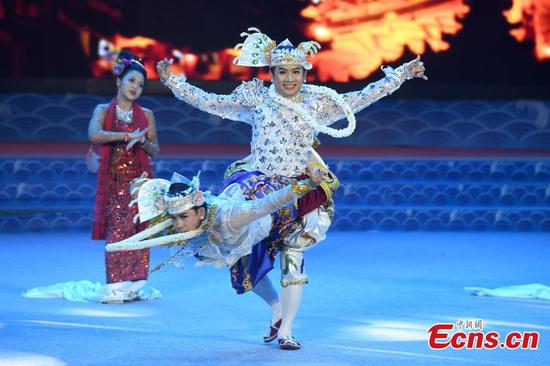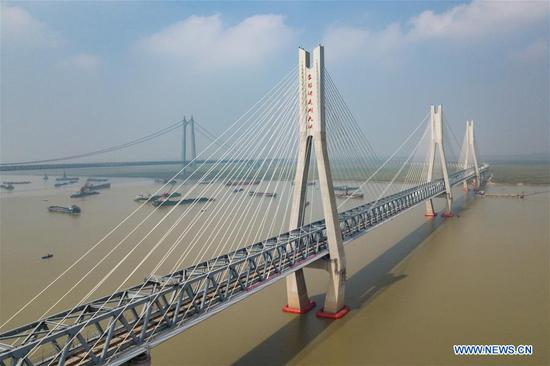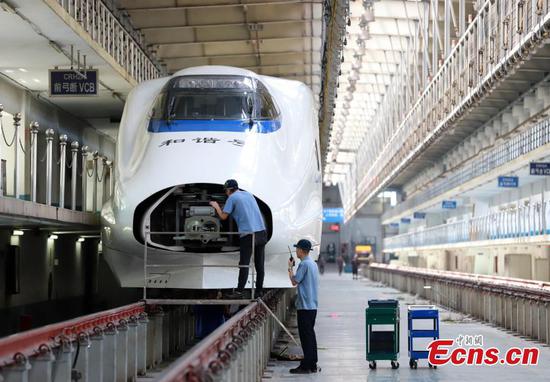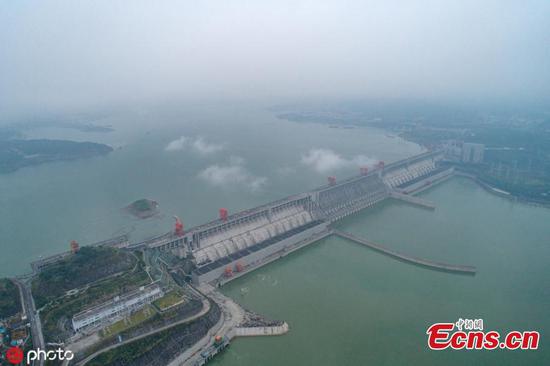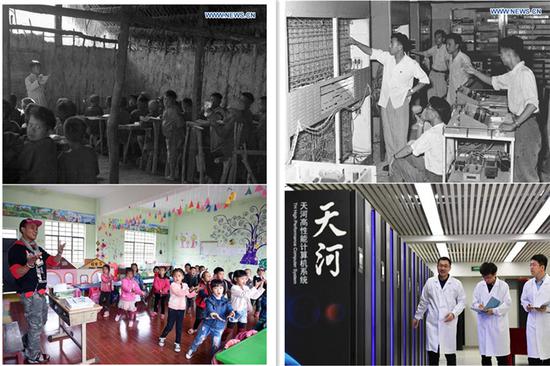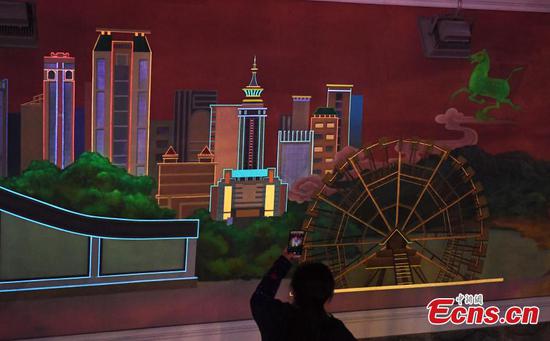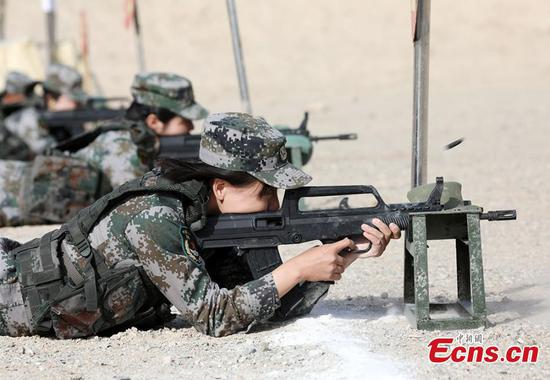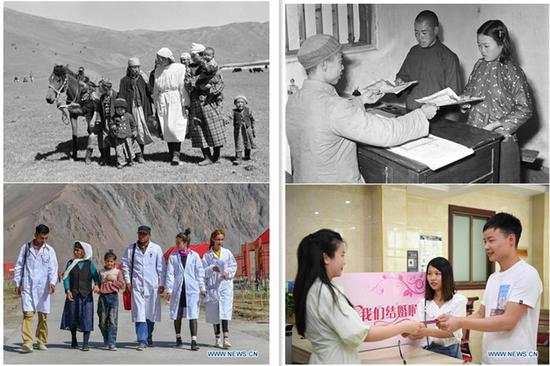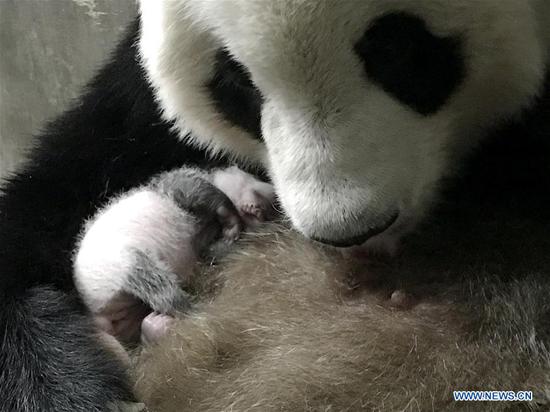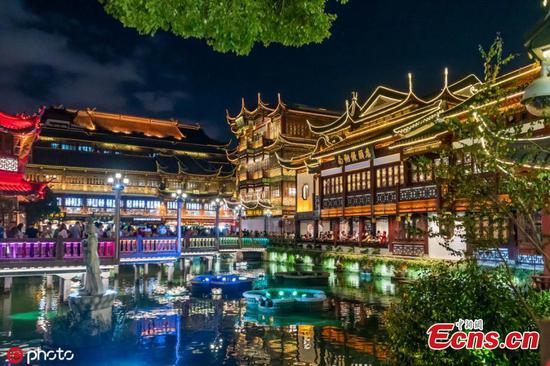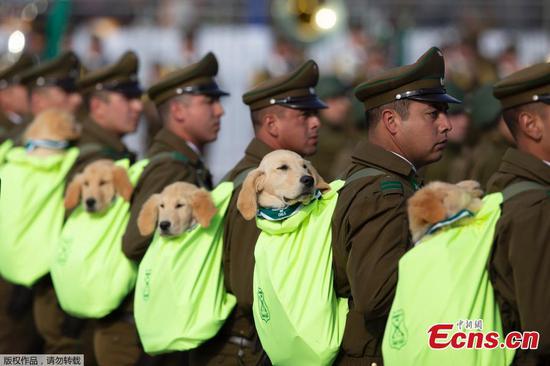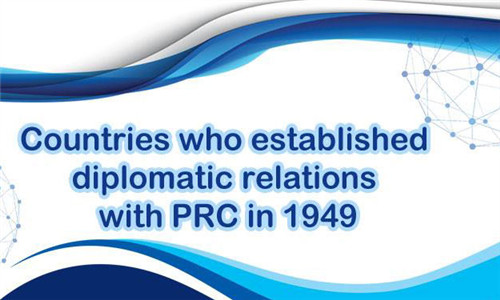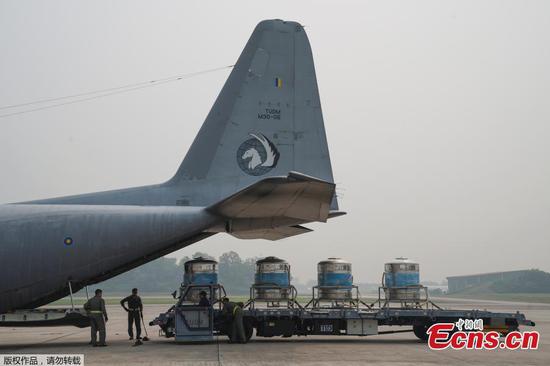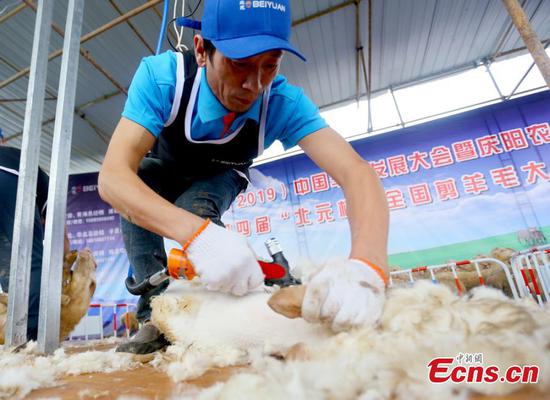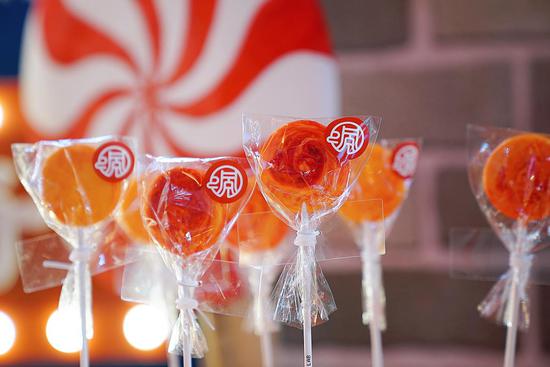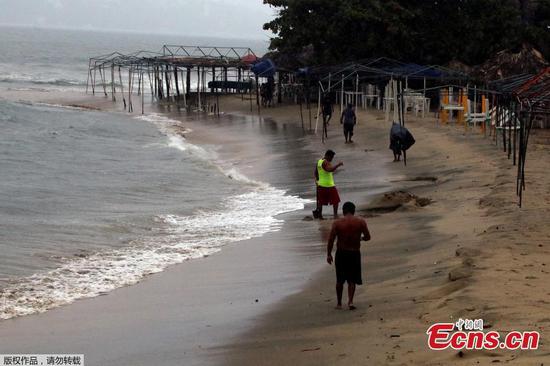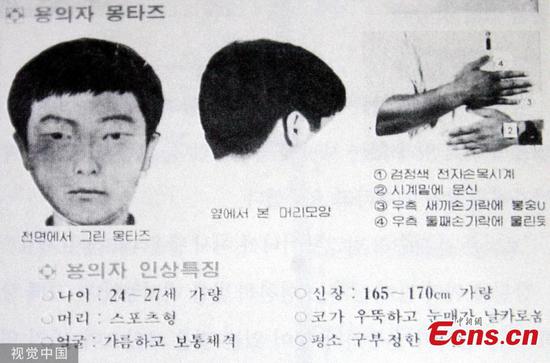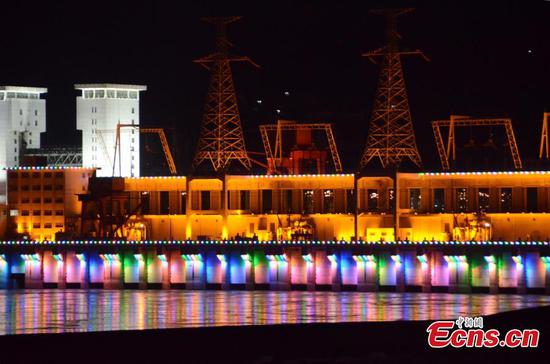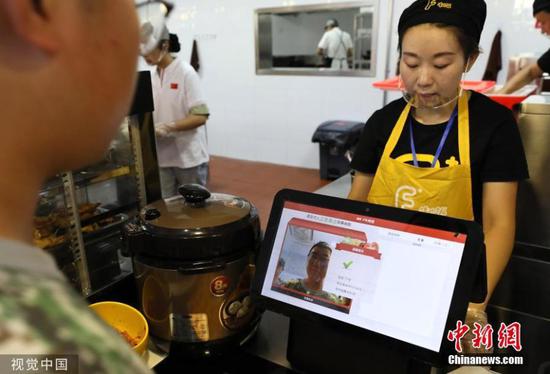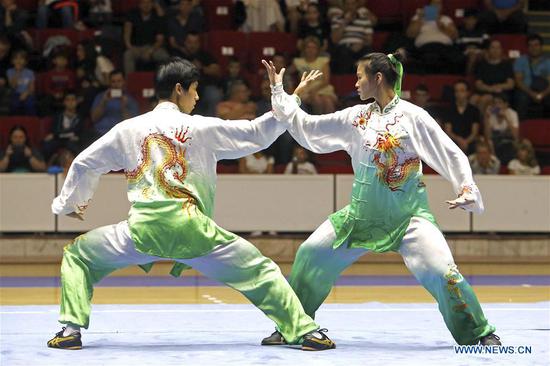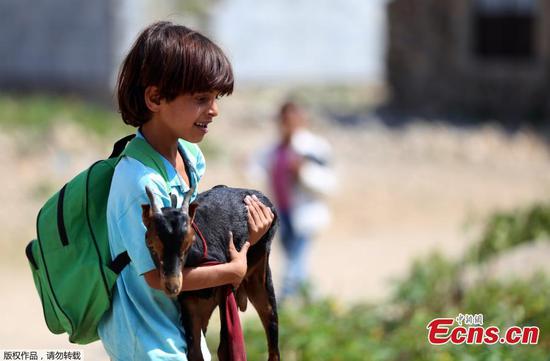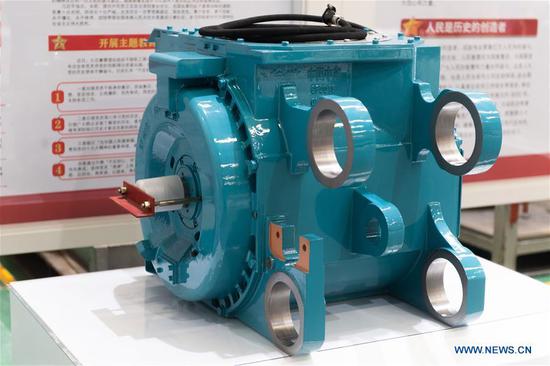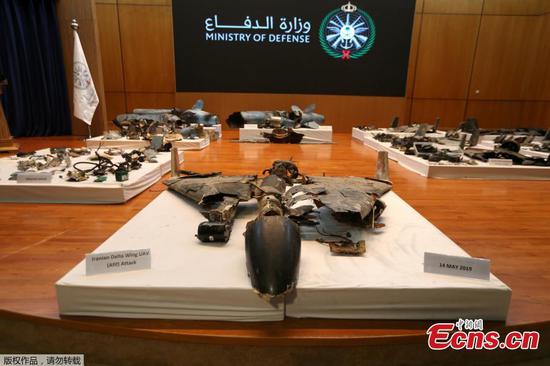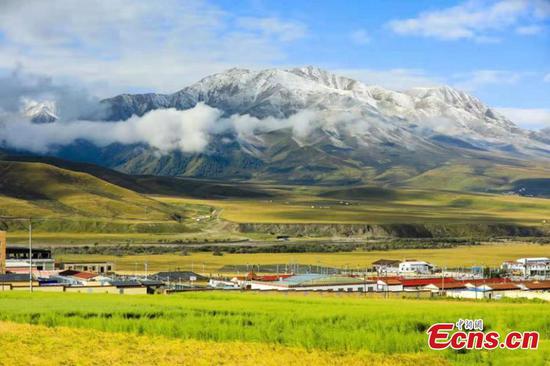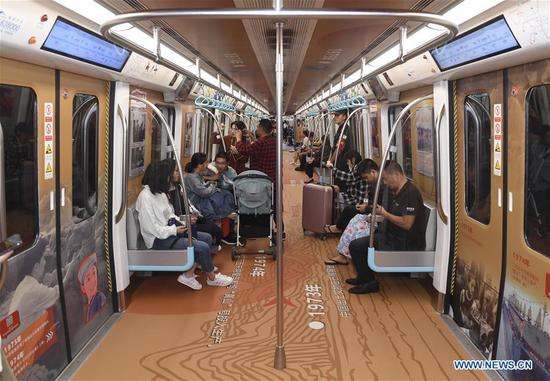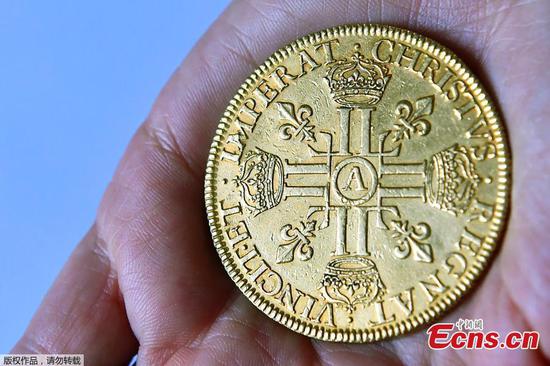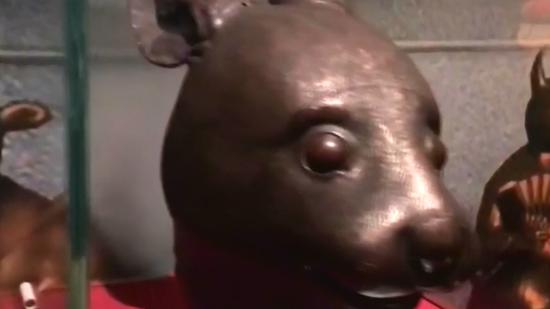Solving Challenges of Post-War Survival
In 1949, the Communist Party of China won an epic civil war against the Kuomintang and established the People's Republic of China. It came to power on a popular mandate: reforming agriculture so people could become self-sufficient, create jobs for massive populations displaced by civil war and Japanese invasion and bring China from underdevelopment to industrialization. This was no easy task for the leadership. Moreover, the leadership had spent their lives fighting a revolution and then a civil war. They were not trained economists or industrialists.
Following the establishment of the People's Republic of China in 1949, the United States of America slapped China with economic sanctions, severed ties and prevented others from having normal diplomatic relations. China was isolated and had to rely on the relations and support available at that time, and the Soviet model of state planning was adopted for industry. It solved a key problem at the time by employing people, assuring industrial output and providing social benefits of health, housing and retirement as social security in a society that for decades had not known any security, suffering from invasion and civil war.
On the agricultural front, land was first given to local villagers who in the first stage were grateful simply to be lifted from a feudal social structure and have their own land to live on. However, when this proved inefficient, the land was then communalized in the belief collective agriculture would offer evenly shared yields. This may have worked in the first stage but became inefficient as the nation progressed, facing new challenges.
In 1949, collectivization, socialization and central planning were immediate answers rectifying decades of social dislocation caused by war. These measures were considered solutions from the toolbox of options available then. But these were long-term solutions, and the story of China's evolution over the decades to follow would be one of innovation, experimentation and reform, ever re-inventing itself to meet the challenges of both domestic development and global change.
Incentive Through Self-Responsibility
In 1979, a tiny experiment occurred in far-off Anhui province. Against the backdrop of nearly three decades of foreign economic sanctions and a process of communalization, China's economy needed to change course, introduce new incentive systems and open its economy through a process of reform.
These reforms began in Anhui Province, when 18 village families agreed by contract that they would pool resources. As simple as it sounds, it was a bold move. They agreed among themselves they would turn over to the state only their quota requirement of crops harvested. Each family could sell the rest and retain the proceeds. Wan Li, then the provincial party secretary, supported their decision. It was later dubbed the "household responsibility system."
In 1981 as a student at Nankai University in Tianjin, the emergence of Chinese entrepreneurialism could be seen across from the entrance gate of Nankai University. There was a fledgling free market. Until then there were no other choices. People had to queue every day to buy food, because they did not have refrigerators. State-distributed food supplies were sparse and irregular; state-store employees dour and irascible. Each day people lined up at those state-run stores with tickets to exchange for staples. Even with money, you could not buy rice or dough without quota-rationed coupons.
But across the street, farmers had all sorts of fruits and vegetables. There was variety. People could see the difference, and the goods on offer grew each day. However, at the state stores, every day, everywhere, selection was always the same — if anything was available. At that time, the free market was on the fringes of China's economy..
Wan Li's early experiment in Anhui ushered in a new Chinese phrase. People in the street were whispering the words "free market." But what did it really mean? A few bold peasants brought vegetables and peanuts folded in rough cloth -- because they had no bags. Squatting on the curbside, they sold them for cash. Remarkably, they kept the money. People talked about it excitedly.









